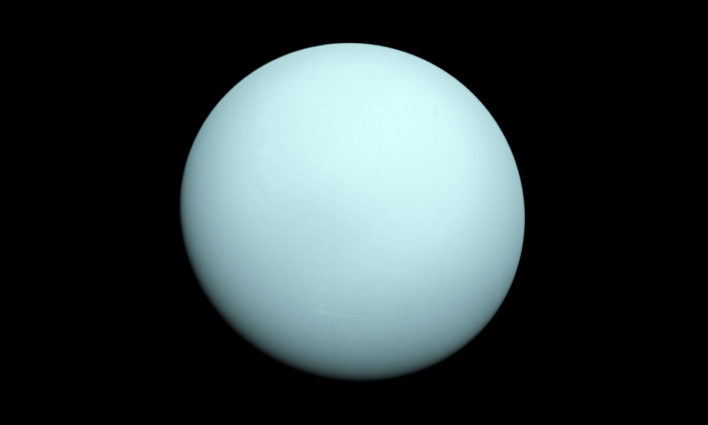Planetary Scientist Issues Desperate Plea For NASA To Probe The Icy Depths Of Uranus
NASA has been studying Mars in depth ahead of its attempt to send humans to the Red Planet. The space agency has sent its Insight Lander, Perseverance rover, Mars Curiosity rover, and the Ingenuity Mars Helicopter, all in an attempt to better understand the planet. However, little is known about the planets that lie in the outer reaches of our Solar System, such as Uranus. In fact, the only spacecraft to ever visit Uranus and Neptune was Voyager 2 with brief flybys in 1986 and 1989. Mandt believes this is a fact that needs to be remedied with a future mission.
Mandt stated in a recent publishing in the journal Science, that a survey by the National Academies of Sciences, Engineering, and Medicine recognized a Uranus Orbiter and Probe (UOP) as "the planetary science community's top priority for the next NASA large-scale mission." The mission would explore how the icy planet formed, as well as other pertinent facts that would "inspire and educate multiple generations about solar system history and the mysteries at its farthest reaches."

Along with the UOP would be an orbiter designed for full system science. Mandt says that a study of the Uranus system could give scientists an explanation of why the planet is tilted on its side. Scientists and astronomers using observations of Uranus from Earth are also not able to collect the data needed to explain the extreme atmospheric seasonal variation over the planet's 84-Earth-year orbit. The suggested UOP probe would measure wind and temperatures, while the orbiter would make global observations in order to determine how the atmosphere of Uranus operated.
Mandt also recognizes in her paper that while Neptune is also an ice giant, its system is very different than that of Uranus and presents its own set of unique questions that cannot be answered by UOP. Due to its vast distance from the Sun, Neptune would be very difficult to reach. Therefore, according to Mandt, technology development and focused mission studies need to begin in this decade to find ways of exploring Neptune as well.


